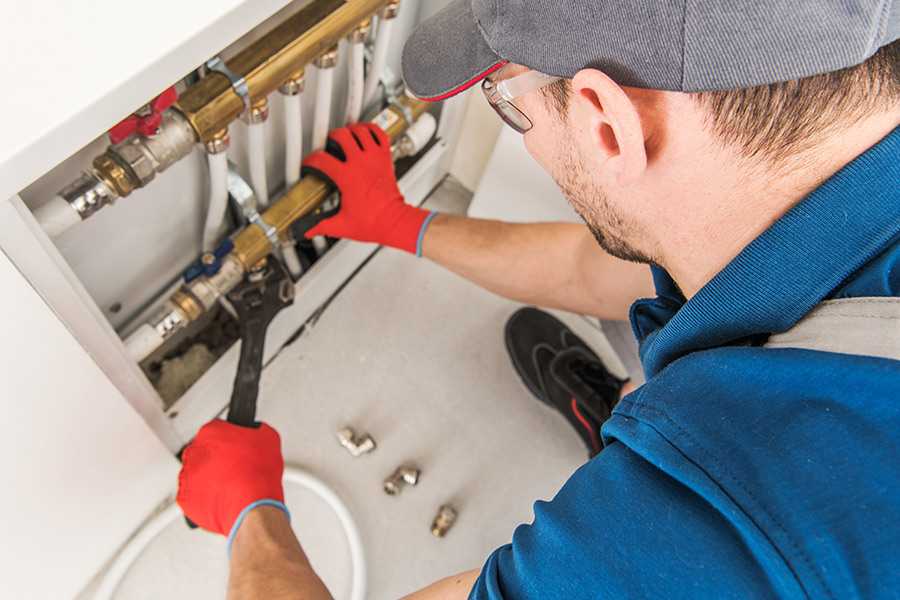Coping with the Most Frequent Hot Water Heater Emergencies
Coping with the Most Frequent Hot Water Heater Emergencies
Blog Article
We have encountered this post relating to Common Hot Water Heater Problems directly below on the internet and felt it made good sense to talk about it with you in this article.

A water heater is one of one of the most vital basic devices that can be located in a house. With water heaters, you do not need to go through the stress of home heating water manually each time there is a need to wash, wash, or the dishes. However, there is constantly an opportunity that your water heater would certainly break down similar to the majority of mechanical devices.
It is necessary to keep in mind any kind of little malfunction and tackle it quickly prior to points get out of hand. Most times, your hot water heater starts to malfunction when there is a build-up of debris as a result of continuous usage. As a safety measure, periodic flushing of your hot water heater is recommended to stop sediment build-up and protect against functional failing.
Common water heater emergency situations and exactly how to deal with them
Insufficient warm water
It might be that the water heating system can't support the warm water demand for your apartment. You could upgrade your water heater to one with a bigger capability.
Fluctuating water temperature.
Your water heater might start creating water of different temperature levels usually ice cool or hot hot. In this scenario, the first thing you do is to guarantee that the temperature is readied to the desired degree. If after doing this, the water temperature level maintains changing throughout showers or other tasks, you might have a damaged thermostat. There might be a need to replace either the thermostat or the home heating device of your hot water heater.
Leaky hot water heater storage tank.
In this circumstance, you ought to turn off your water heater, allow it to cool down, and also thoroughly look for the resource of the problem. At times, all you need to do is to tighten a few screws or pipeline connections in situations of minor leaks. If this does not work as well as the leakage continues, you might require to use the services of a technician for a proper replacement.
Stained or stinky water
When this takes place, you need to know if the issue is from the tank or the water source. If there is no funny scent when you run chilly water, then you are particular that it is your water heater that is malfunctioning. The stinky water can be caused by rust or the build-up of microorganisms or debris in the water heater tank.
Final thought
Some house owners overlook little caution and also minor faults in their hot water heater device. This just brings about more damages and also a feasible total malfunction of your home appliance. You must handle your water heater faults as quickly as they come near avoid even more expenditures as well as unnecessary emergency problems.
With water heaters, you don't require to go with the stress of home heating water manually every time there is a demand to take a bath, do the washing, or the meals. It may be that the water heating unit can't support the warm water need for your apartment. Your water heating unit can begin producing water of different temperature levels usually ice hot or chilly hot. If there is no funny odor when you run chilly water, then you are particular that it is your water heater that is malfunctioning. The smelly water can be triggered by corrosion or the accumulation of microorganisms or debris in the water heating unit storage tank.
Common Water Heater Issues and What You Should Do
What Type of Water Heater Do You Have?
Before we begin it’s first important that you identify the type of water heater you have on your property. There are two main types of water heaters out there: conventional and high efficiency.
Both of these types of products typically use either gas or electricity to heat power. There are also solar water heaters that use a thermal collector on the roof or yard to heat the water.
While these models are not as common, they can cut heating costs in half. In this article, we will focus on conventional and high efficiency.
How Do My Electric and Gas Water Heater Work?
Though they look similar, electric and gas water heaters work very differently. It’s important to know their basic function because often problems can be specific to the heating source.
In the electric model, a thermostat on the side of the machine detects the temperature of the water in the tank. When the temperature needs to rise electricity flows to a heating element suspended in the water.
Gas models also use a thermostat device — typically with a mercury sensor at the tip and an additional sensor called a thermocouple. The thermocouple detects whether the pilot light is on and controls the flow of gas.
When the thermostat drops below the appropriate level gas is released which becomes ignited by the pilot light. The flame heats the bottom of the water tank which causes hot water to rise and cold water to drop.
This natural circulation continues until the water reaches the desired temperature. Then, the thermostat triggers the gas control valve to shut off the flow of gas.
What Are the Most Common Issues and How Do You Fix Them?
https://happyhiller.com/blog/common-water-heater-issues-and-what-you-should-do/

We had been brought to that editorial on Warning Signs You Need Water Heater Repairs from an acquaintance on a different website. Please take the opportunity to promote this blog post if you enjoyed it. I recognize the value of reading our article about Is Your Water Heater Leaking?.
Book With Us Today! Report this page